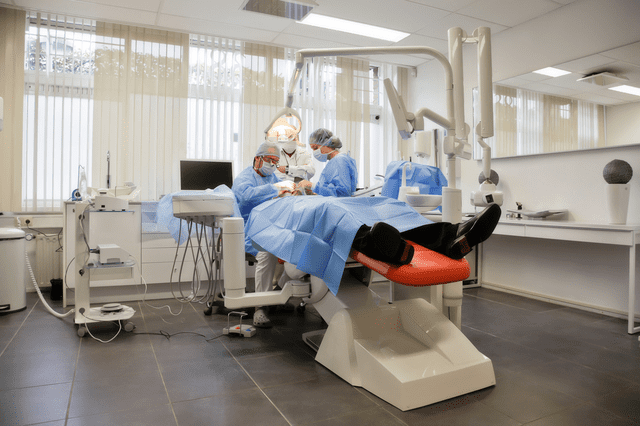For many people, going to the dentist can be a frightening experience, but it can be especially difficult for those with special needs. These people can be children, people with intellectual or developmental problems, people who have a great fear of getting their teeth cleaned, or those who need significant dental work. However, due to developments in oral medicine, these individuals can now get the care they need in a more convenient and comfortable manner.
In this blog post, we will explore the benefits, considerations, and importance of sedation dentistry in Duncan for patients with special requirements.
Understanding Dentistry under Sedation
Sedative drugs are used during dentistry under anesthesia to make patients more comfortable. It is often used to reduce discomfort, anxiety, and fear while also ensuring that patients with specific needs receive the dental treatment they deserve. Various sedative alternatives, such as nitrous oxide (laughing gas), oral sedation, intravenous (IV) sedation, or general anesthesia, can be taken into consideration depending on the patient’s needs and the complexity of the procedures.
Types of Sedation
- Minimal Sedation: In this type of sedation, patients are still awake and alert, but their fear and suffering are minimized.
- Moderate Sedation: This level of sedation, sometimes referred to as conscious sedation, causes a more profound state of relaxation while still enabling patients to respond to spoken instructions.
- Deep Sedation: Deeply sedated patients are on the verge of unconsciousness but are still awakenable if necessary.
- General Anesthesia: The patient is entirely asleep at this level of sedation, which is often utilized for difficult or invasive procedures.
Benefits of Sedation Dentistry for Patients with Special Requirements
- Anxiety and Fear Reduction: In individuals with exceptional needs, dental anxiety and dread are common. These emotions are alleviated through sedation dentistry, which enables patients to undergo the required dental procedures without being overly anxious or uncomfortable.
- Increased Cooperation: Due to sensory problems, cognitive limits, or anxiety, patients with intellectual or developmental impairments may find it difficult to comply during dental operations. By calming them down, sedation can increase cooperation and make it easier for a dentist near you to carry out required procedures.
- Comfortable Experience: Patients are guaranteed to feel less pain or discomfort throughout dental operations due to sedation. This is especially crucial for patients with special requirements who may have sensory sensitivities or difficulty communicating discomfort.
- Time Efficiency: Under the influence of sedation, dental treatments can call for many visits or prolonged treatment sessions can be completed more quickly. As a result, the overall duration of treatment decreases and fewer follow-up consultations are required.
Considerations and Safety Measures
While dentistry under sedation offers numerous advantages, it is crucial to prioritize safety and take necessary precautions. Dentists should consider the following:
- Thorough Assessment: Perform a thorough analysis of the patient’s medical history, taking note of any underlying conditions, allergies, or prescription drugs the patient may be taking.
- Qualified Professionals: Dental specialists with experience and training in sedative methods should practice sedation dentistry. This guarantees that the procedure is carried out securely and successfully.
- Monitoring and Equipment: Throughout the process, it is essential to continuously evaluate vital indicators including heart rate, blood pressure, and oxygen levels. In case of emergencies, dental clinics should have the required supplies and drugs on hand.
- Informed Consent: After going over the advantages, drawbacks, and other sedation dentistry options with the patient or their legal guardian, get their informed consent.
Importance of Communication and Post-Sedation Care
Effective Communication
Understanding the patient’s unique requirements and concerns requires open communication between the dentist, the patient, and the person in charge. This allows for more appropriate sedative procedures.
Post-Sedation Recovery
Patients can keep experiencing the effects of sedation, such as sleepiness, after the surgery. For post-sedation treatment, dentists give comprehensive guidelines, assuring a quick recovery with little discomfort.
Delivering dental treatment to people with exceptional needs under anesthesia has changed the field of dentistry. Sedation Dentistry Near You prioritizes patient safety and comfort while enabling effective and thorough treatment by reducing anxiety, fear, and discomfort. Sedation dentistry training enables dentists to meet the special requirements of these patients, creating a happy dental experience and advancing overall oral health. Explore sedation dentistry as a potential choice for the best dental treatment if you or a loved one has specific needs.
Get Optimal Dental Care Today!
When seeking optimal dental care in the Cowichan Valley, look no further than our neighborhood dental office! With a commitment to excellence and patient comfort, we provide comprehensive dental services tailored to individual needs. Whether you require routine check-ups, preventive care, restorative treatments, or dentistry under sedation for special requirements, our dentist in Duncan ensures a positive and comfortable dental experience.
Trust in our expertise and dedication to achieve optimal oral health and a confident smile. Visit us at Cowichan Valley Dental!










